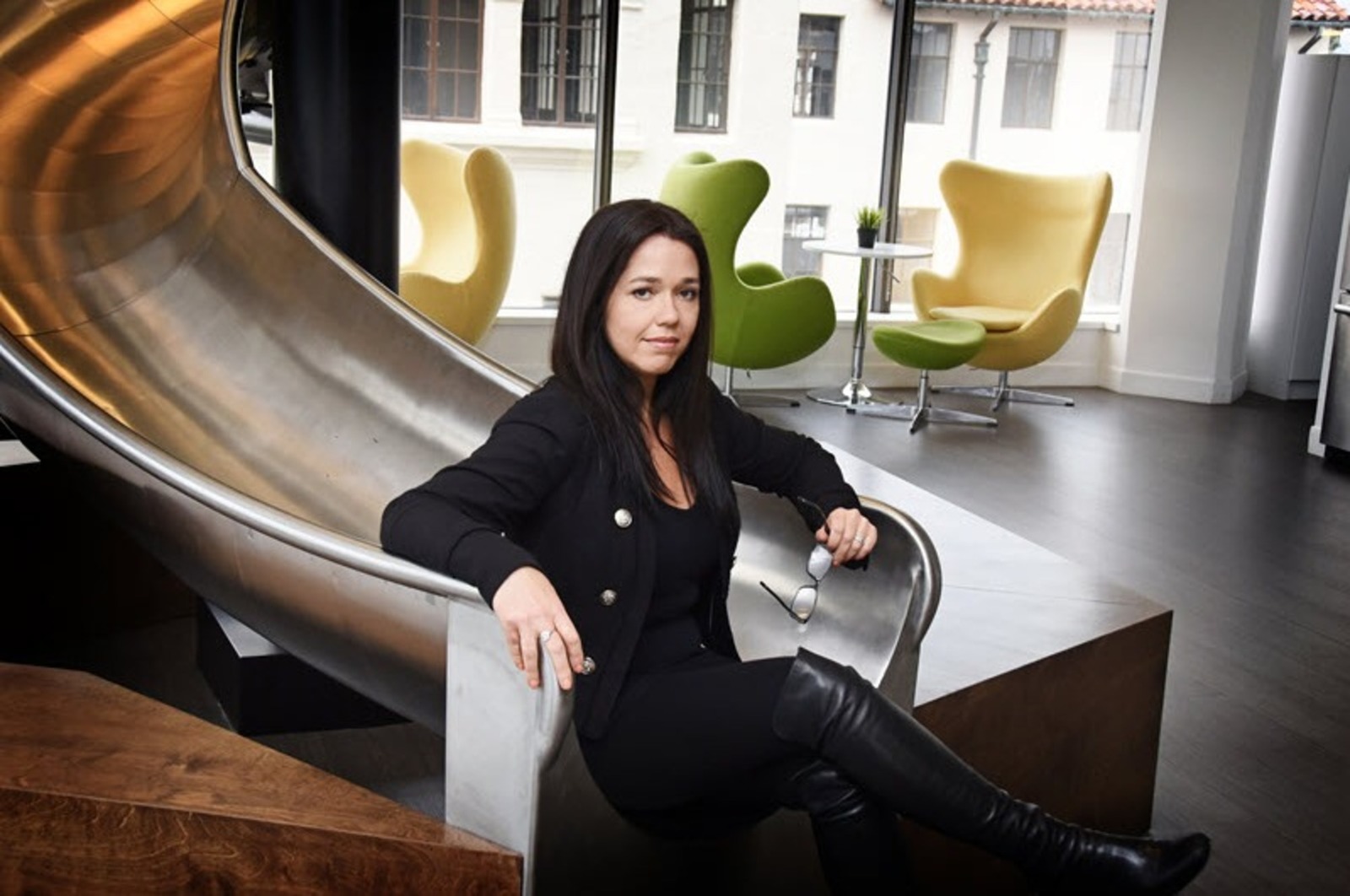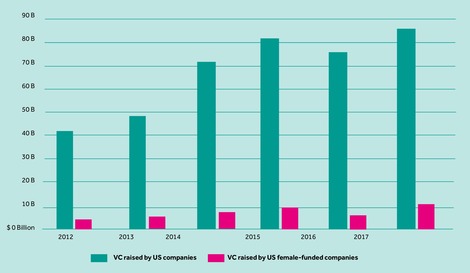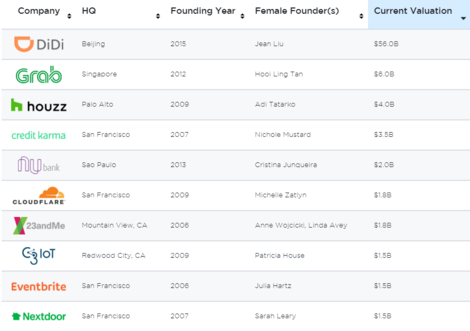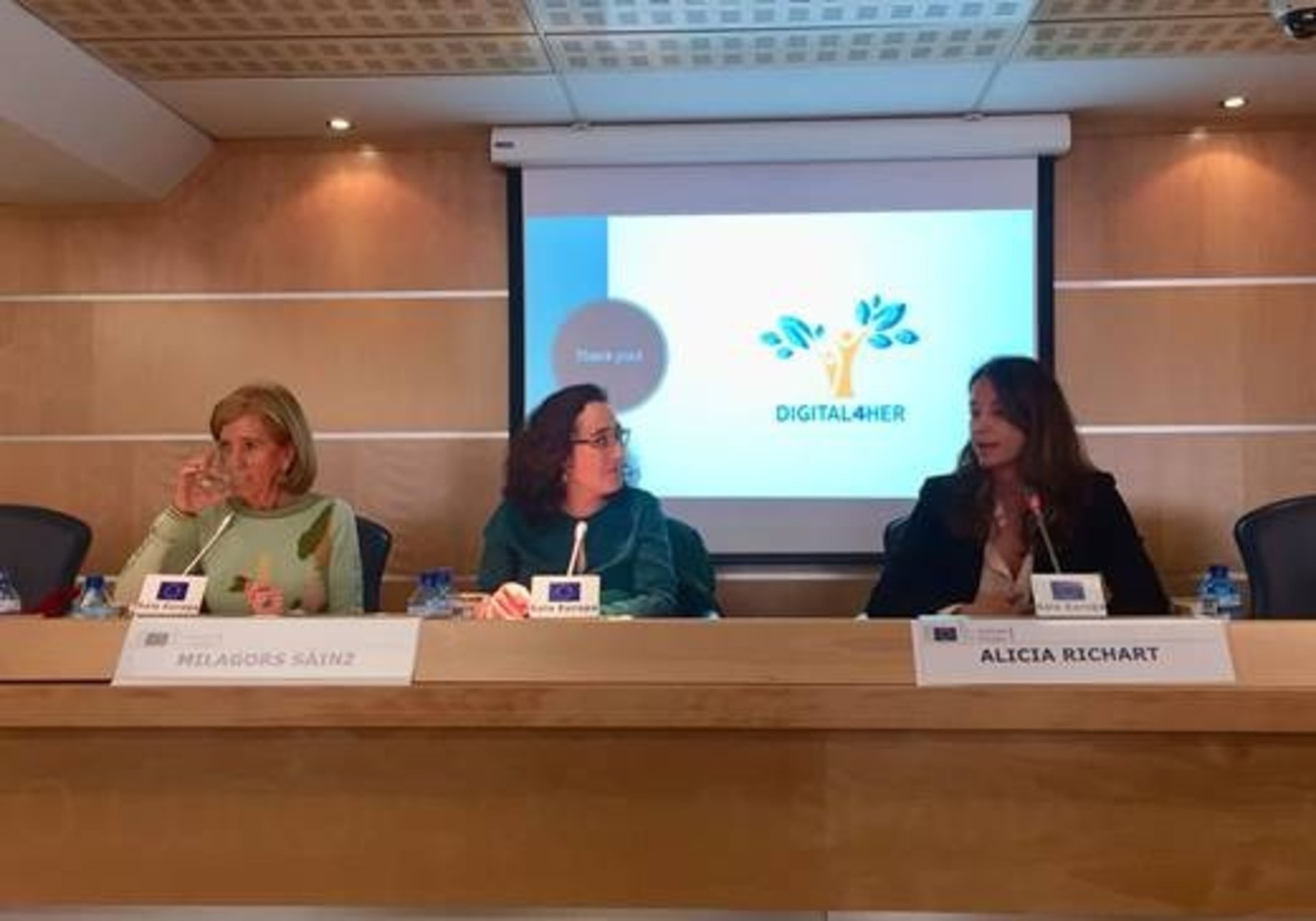20/06/2018
In the technology sector, a company is known as a unicorn if it has been able to reach a value of one billion dollars at any stage of its capital raising process. The name, coined in 2013, alluded to something almost unattainable, a myth or fantasy, but it has become a reality
.
Companies such as Facebook, Uber, Xiaomi, AirBnb, Linkedin and Twitter have been part of this small group of unicorns almost from the beginning, but they are growing steadily. In 2013, five years ago, there were 39 unicorns. Today there are already 239. Of these, 23 have been founded and developed by women.
Most of these companies, 16, are of U.S. origin, but they are not the only ones, nor are they the most important. Four are Chinese, one is based in Singapore and the others in India, Brazil and Australia. Of all of them, the most highly rated is the Chinese company Didi, founded by Jean Liu in 2015.
Didi, also known as “the Chinese Uber,” is a transportation company that provides vehicles and cabs for hire through apps and smartphones. It also manages bike sharing. And its valuation is growing steadily. She is currently worth $56 billion, making Liu one of the most powerful women in the world.
Grab, founded by Hooi Ling Tan in Singapore, is also active in the same market. We Westerners, who simplify everything, also refer to this company as “the Uber of Southeast Asia”. In India, these tasks are entrusted to the company Ola, another unicorn, which, however, was not founded by a woman. Those who have tried them say that both Didi and Grab have nothing to envy to other transportation applications.
Houzzthe top-rated U.S. unicorn, connects homeowners who want to renovate their homes with professionals in the industry. Cloudfare, founded by Michelle Zatlin in San Francisco, specializes in DNS resolution services, while 23andMe is a company that offers a DNA test through a saliva sample.
As many as 23 companies that have achieved unicorn status have been founded by a woman. Change is coming, but very slowly. As revealed by PitchBook startups founded by women in the United States raised $10.5 billion in venture capital funding in 2017, far higher than the 6,700 achieved in 2016 and the 4,000 achieved in 2012. But they are framed within annual increases in global venture capital investment.
In Europe , the gender gap is even wider, as revealed by the fact that none of the 23 unicorns founded by women originated on this continent. According to the study ‘Women in the Digital Age, presented by the European Commission, only 24 out of every 1,000 women who graduate do so in ICT-related subjects, with 6 of these women ending up working in the digital sector.
In addition, women quit their jobs in the digital sector much more than men, especially between the ages of 30 and 44. This is what is known as the opt-out phenomenon, behind which structural problems, biases and stereotypes, personal implications and cultural elements remain.
In the opinion of Alicia Richart, CEO of DigitalES who participated in the presentation of this study in Madrid, there is a gap between university education and the skills that companies need. “Improved incentives are needed to dislodge biases regarding women and vocations,” she added.
Perhaps for this reason, and in the interest of continuing to reduce the gender gap, it is worth appreciating the role of these 23 pioneering women who have achieved nothing less than founding and consolidating 23 unicorns, backed by a new generation of disruptive technology.













